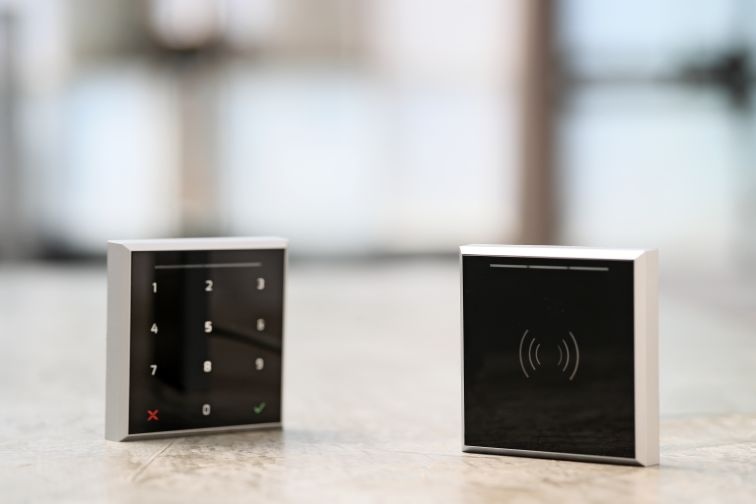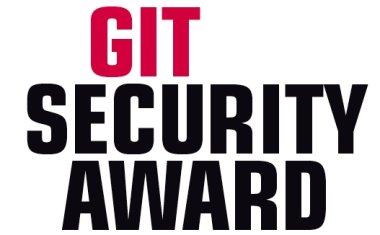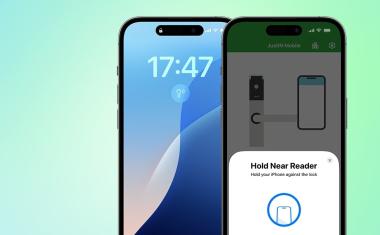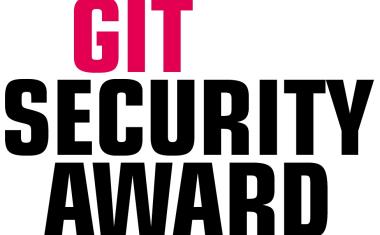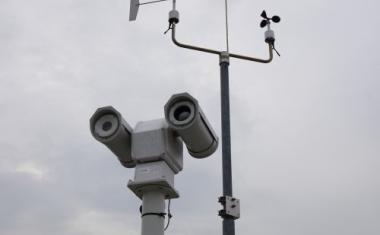Making access control future-proof
In access control, smartphones and ID cards can be used as identification media. A hybrid solution covers all needs.
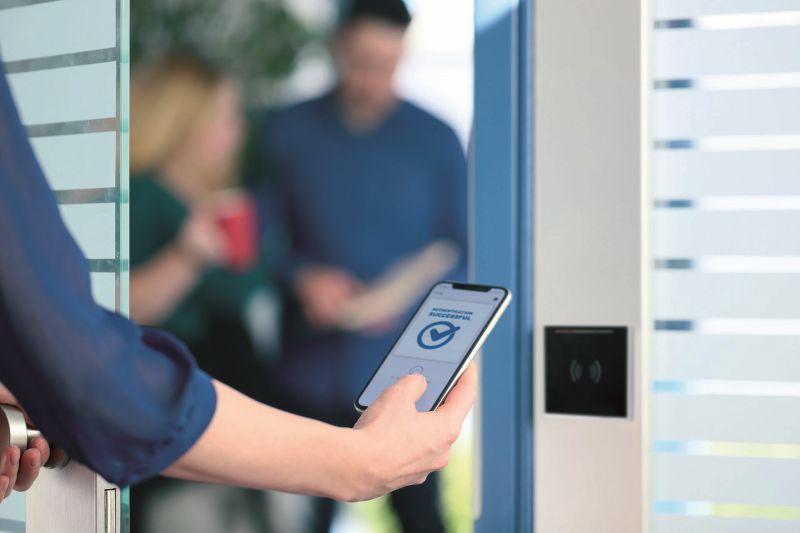
In the field of access control, RFID transponder cards have long been considered the identification medium of choice for granting authorized persons access to defined areas. But digital credentials, so-called mobile credentials, on smartphones or in the form of wearables are becoming increasingly popular. Since most users have their smartphone handy at all times, this eliminates the need to carry an additional physical credential. Access control system operators also benefit: no keys or cards need to be handed out, and in the event of loss or theft, the badge can be easily blocked and replaced later. Last but not least, authorizations can be issued quickly and flexibly for different user groups such as customers, service providers or guests. These can be limited in terms of the premises and the times during which they may be entered.
Two transmission standards for mobile access control
Two transmission standards can be used for mobile access control. For the BLE (Bluetooth® Low Energy) standard, users usually need an app on their cell phone to enable access. BLE can also be used wherever a higher reader range is required, such as when opening parking lot barriers.
Unlike BLE, NFC does not always require a manufacturer-specific app. Instead, the access authorization can be stored as a mobile passport directly in the smartphone wallet. The reading distance is only a few centimeters. Such a solution is, therefore, ideal wherever classic access applications are used. NFC is also particularly suitable for temporary access authorizations such as visitor passes.
Hybrid systems: using the card and smartphone in parallel
In addition to the smartphone, the access card continues to be used, especially since many companies also use the card as an employee ID. If companies or institutions want to use both options for access control, they need a hybrid solution that supports analog and digital credentials. This makes sense in all industries where an access control system needs to provide security while functioning conveniently for heterogeneous user groups. Examples include university campuses, events, hotels or cruise ships.
At the heart of such a hybrid solution are readers for access control that work with both smartphones and cards. In addition to mobile technologies, powerful readers should also be able to process a wide variety of transponder technologies. After all, not all RFID cards are the same. Companies or organizations with multiple branches often use different transponder technologies from location to location to control access to the building. In order to nevertheless enable simple and cost-effective access for different user groups, a flexible solution is required that can be adapted to the needs of companies and institutions. Multifrequency readers are available on the market that support up to 60 transponder technologies in addition to BLE and NFC and are certified for use in up to 110 countries worldwide. Such a broad spectrum ensures that operators of access control systems are prepared for requirements that may arise, for example, as a result of new technologies or newly added user groups.
Migrating to a future-proof system
Companies or organizations that want to future-proof their access control system and enable the use of mobile technologies do not necessarily have to install a new system. Migration of an existing reader system is also possible. Solution providers in the field of access control and intrusion detection technology, such as Sesamsec, can support building operators during the migration and show them options for the changeover.
